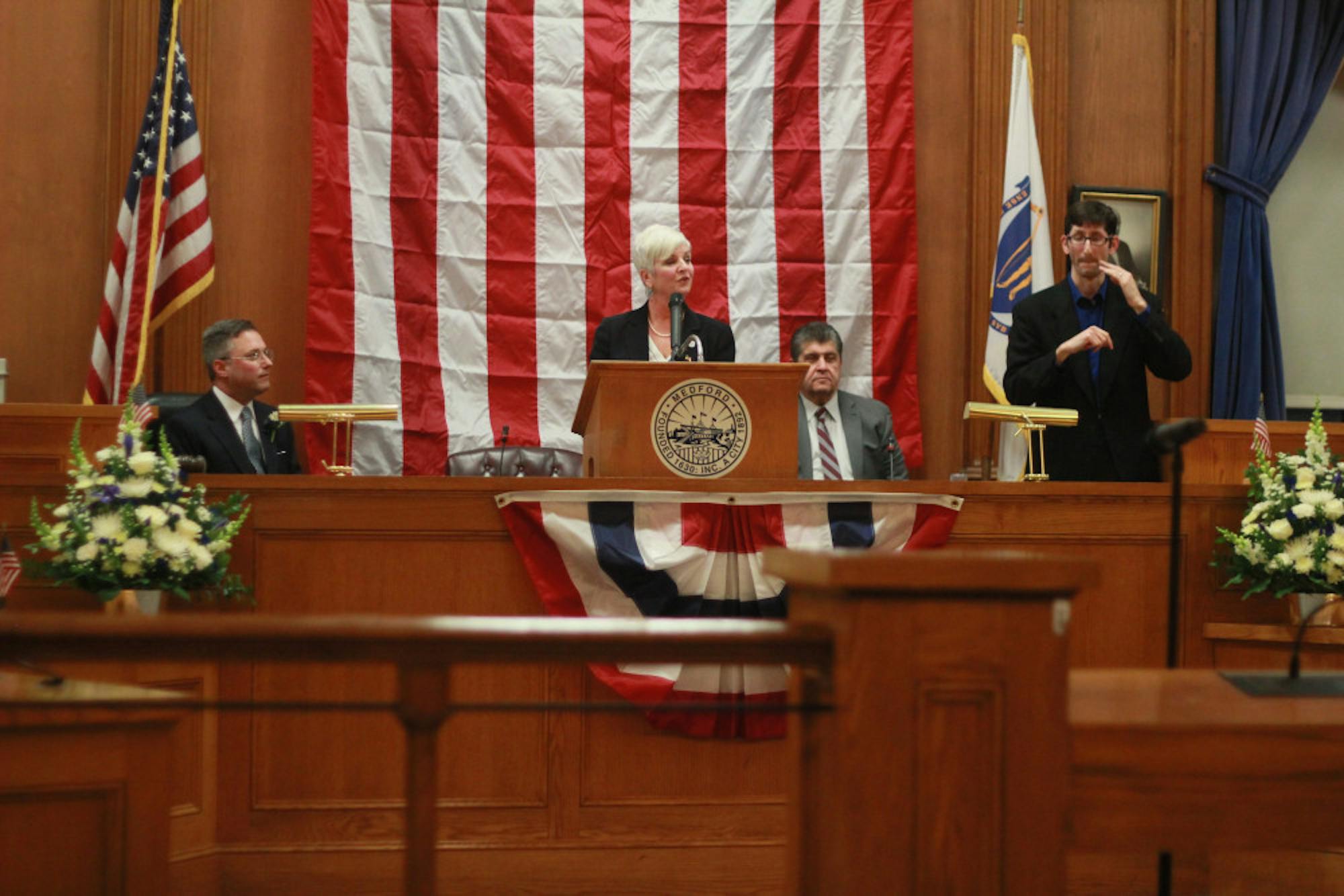Seventeen people died from opioid-related overdoses in Medford in 2016, according to the Massachusetts Department of Public Health’s August 2017 report on opioid-related overdose deaths. In the same time, Boston saw 202 fatal overdoses, and Somerville witnessed 22 deaths relating to opioids.
It is in this context that Medford Mayor Stephanie Burke appointed Paul Spencer as recovery coach to support city residents struggling with opioid addiction in July 2017, according to the city's website.
Spencer is a trained interventionist and will soon be a certified addiction recovery coach, Burke said in the press release published on Medford's website. A lifelong Medford resident, Spencer has himself recovered from opioid addiction and seen the epidemic affect the lives of many in the community.
Spencer's specific role is to ensure that those struggling with addiction have the resources to get clean.
Spencer said he will work with Lauren Dustin, a regional coordinator with the Mystic Valley Public Health Coalition (MVPHC) based in Medford, to organize efforts to mitigate the opioid epidemic.
According to Dustin, the MVPHC organizes public health efforts in Medford, Malden, Melrose, Stoneham, Wakefield and Winchester.
Spencer said Medford has a high death rate even compared to other towns in Middlesex County, which itself sees high mortality rates compared to other counties in the state, due in part to its size and population.
However, Dustin noted that overdose statistics were not always accurate and often underestimated the number of fatalities.
“It is a bit hard to tell the total number of deaths in a given year because there are a lot that are pending," Dustin said, referring to the sometimes unclear cause or circumstances of death. "It sometimes takes six months to a year for things like that to come back."
Spencer explained that 40 percent of overdose victims in Medford and the surrounding communities worked physically demanding trade jobs, according to city data. He said his office is working on a program to help vulnerable workers and addicts.
“We’re trying to work with the police to set up a diversion program for people who are a little younger and they get caught up with drinking or something like that, to not funnel them right into the [criminal justice] system" Spencer said. "We want to provide them with education that’s going to set them on a path that’s not going to lead them towards addiction."
Spencer described steps the city was already taking to prevent overdose deaths. Medford police officers and emergency responders are now equipped with Narcan, an opioid agonist used to treat overdoses.
“Narcan is wonderful because it gives people an opportunity to get into recovery. If you’re dead, you have no chance,” Spencer said. “Fatal overdoses have gone down in some communities that have carried Narcan, but non-fatal overdoses have gone up."
Spencer noted that people he knew who had been administered Narcan often tried to recover, or at least survive, when they had been hopeless before. He emphasized that the cost of the epidemic isn’t reflected in statistics.
“If they weren’t carrying Narcan, fatal overdoses would be through the roof," he said. "Those are families that are losing their kids, and brothers and sisters. I mean, it’s already devastating and that would just be even more crippling."
Ander Pierce, a senior, is active in organizing to combat opioid overdoses through community outreach in the Boston area, via organizations like ACT UP Boston and the Gloucester needle exchange. According to Pierce, it is not enough that only police officers carry Narcan; the problem is so widespread that all people should carry the overdose prevention drug.
Spencer noted that it was encouraging to see the City of Medford take concrete steps to fight addiction and overdoses.
“It’s an uphill battle. But it’s nice to have these small wins, like me being here, like this position being created and really trying to be an agent of compassion, an agent of love and an agent of change,” Spencer said.
Mayor Burke appoints new recovery coach to combat opioid crisis






